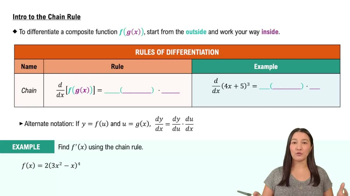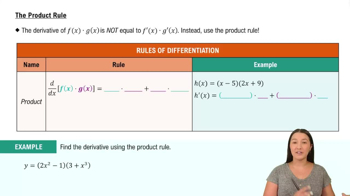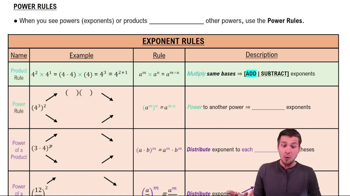Textbook Question
Calculate the derivative of the following functions.
y = e^2x(2x-7)⁵
 Verified step by step guidance
Verified step by step guidance Verified video answer for a similar problem:
Verified video answer for a similar problem:



 5:02m
5:02mMaster Intro to the Chain Rule with a bite sized video explanation from Patrick
Start learning